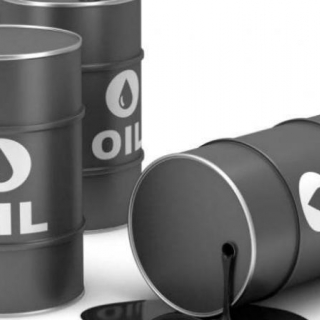


Oil prices rebounded after last week's decline after OPEC+ agreed to raise production at a modest rate, amid doubts about how many members could continue to increase output.
The rise marked a reversal of production cuts that were previously set to last until the end of 2026—following the return of most of the oil production that had been halted for several months—as the alliance seeks to regain market share. This signals the alliance's confidence in further pushing its bold oil market strategy.
Brent rose above $66 per barrel after falling nearly 4% last week, when it became clear that a production increase was imminent. Prices also pushed higher after Bloomberg News reported that the European Union was exploring new sanctions on Russian banks and energy companies as part of its latest steps to end the war in Ukraine, a move expected to be coordinated with the US.
The Organization of the Petroleum Exporting Countries and its partners will add 137,000 barrels per day in October, less than the increases scheduled for the previous two months. Actual volumes are also likely to be lower than announced, as some group members face pressure not to take part in their increases to compensate for previous increases, while others lack spare capacity.
Earlier last month, the International Energy Agency forecast a record surplus next year, which Goldman Sachs Group Inc. predicted would push Brent to the low $50s. The global benchmark has fallen more than 10% this year, with President Donald Trump's trade tariffs also weighing on the energy demand outlook.
OPEC+ said on Sunday that restarting the remaining 1.66 million barrels per day of production cuts would depend on "evolving market conditions," and that the production increases could be reversed. The group's faster-than-expected return to production that had been halted over the past few months surprised some in the oil market, but prices have remained relatively stable after an initial decline in April.
"Saudi Arabia is back in control, they're the only one with spare production capacity," said Jeff Currie, head of energy pipeline strategy at Carlyle, in a Bloomberg TV interview. "There's a very fine line between excess oil supply and running out of spare production capacity."
Monday's oil price gains also drew support from the broader market, with global stock markets reversing Friday's decline amid concerns that the Federal Reserve is lagging behind in supporting a cooling labor market. The dollar also weakened, making commodities priced in that currency more attractive.
Saudi Crown Prince Mohammed bin Salman will visit Washington in November to meet with Trump, indicating possible political considerations behind the supply decision. The US president has repeatedly called for lower fuel prices as he seeks to control inflation.
China's buildup of crude oil stocks by about 200,000 barrels per day in recent months has helped support demand, Frederic Lasserre, global head of research and analysis at Gunvor Group, said at the Asia Pacific Petroleum Conference in Singapore on Monday. However, China may not be able to absorb the entire upcoming market surplus, he added. (alg)
Source: Bloomberg
Oil prices were little changed in Asian trading on Thursday after US President Donald Trump backed down from a threat to impose tariffs on European countries over Greenland. This decision helped ease ...
Oil prices rose on Tuesday, supported by a combination of supply disruptions from Kazakhstan, improved global economic growth projections, and a weakening US dollar, making dollar-denominated oil chea...
Oil traded in a tight range on Thursday after two straight sessions of losses, as markets digested a sharper US push to shape Venezuela's crude flows—alongside fresh tanker seizures tied to sanctions....
Oil prices edged higher as the market digested the United States' latest moves regarding Venezuela. WTI held steady at US$56/barrel after a sharp drop, while Brent remained below US$60/barrel. This s...
Brent crude prices sank in volatile trading on Wednesday after U.S. President Donald Trump said Venezuela will supply tens of millions of barrels of oil to Washington. Oil prices were nursing losses ...
Gold prices briefly caused a stir after hitting a new record, but then slowed. The main trigger: US President Donald Trump withheld the threat of tariffs on Europe and claimed there was a "framework" for a future agreement on Greenland. This calmer...
Oil prices were little changed in Asian trading on Thursday after US President Donald Trump backed down from a threat to impose tariffs on European countries over Greenland. This decision helped ease geopolitical tensions and improve market...
The Nikkei 225 Index climbed 1.73% to close at 53,689, while the broader Topix Index rose 0.74% to 3,616 on Thursday, snapping a five-day losing streak as Japanese shares were lifted by a strong rally in chip and artificial intelligence related...